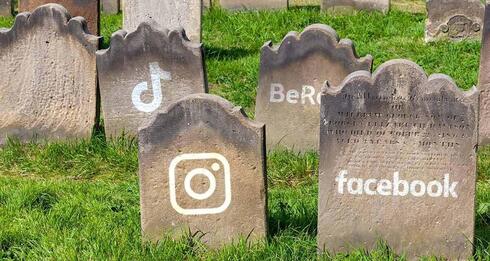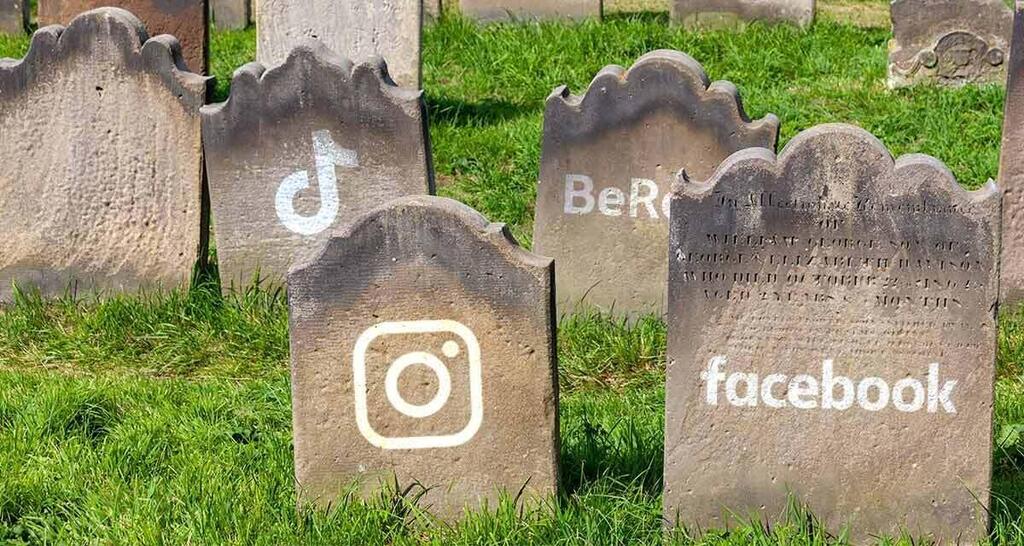
Your final login: what happens to your digital identity after death?
New laws and tech tools aim to help—but the responsibility is still yours.
A few years after a close friend passed away, I was suddenly struck by a wave of curiosity mixed with nostalgia. It sent me scrolling through our old WhatsApp conversations. The messages were still there—but T’s profile picture had been replaced by a photo of a smiling young man. Her digital memory remained, but her number continued to live on in an online world that knows no boundaries of time or place.
This phenomenon is not new, but as the years pass, two truths become more evident and more intertwined: the internet remembers (almost) everything, and souls can live forever online—until someone tells them otherwise.
We are marching toward a world where the internet is full of digital souls. According to one estimate, in about 50 years, Facebook will host more profiles of the dead than of the living. Even today, in a small country like Israel—long accustomed to loss and conflict—the internet presents a strange reality: the living mingle with the dead, and the dead leave behind vast troves of information, but no legal status.
“In the most basic legal sense, the deceased have no rights at all,” says Dr. Tal Morse, a lecturer at the Jerusalem Multidisciplinary Academic Center and a research fellow at the University of Bath's Centre for Death and Society. “Privacy is part of human dignity, and for that, you need a living subject to hold the right. Once a person dies, there is no longer a ‘person,’ and therefore, under Israeli law, no right to privacy or dignity after death.”
Morse explains that, intuitively, many non-lawyers feel the opposite—that they would prefer their right to privacy to continue even after death. Most people would not want all of their data exposed, even to close loved ones. They would rather retain some control over the digital knowledge they've accumulated.
In Israel, this tension is beginning to be addressed through legal regulation—at least regarding technology companies. Last summer, the Knesset passed a precedent-setting law initiated by MK Erez Malul, regulating access to digital content after a person's death. It’s part of a global trend recognizing that the legacy we leave behind is not just physical, but also virtual.
The new law requires digital service providers to establish clear policies on access to a user’s personal data after death. Until now, companies set their own rules—or none at all—creating conflicts between a deceased person’s right to privacy and their heirs’ right to inherit digital assets.
“Imagine if children were recognized as the legal heirs of their parents' estate, but suddenly someone said—‘That drawer can’t be opened,’” says Dr. Paula Kiel of NYU-London. “A new relationship has been created in which a commercial company sits between the memories, thoughts, and images of the deceased and their heirs.” But Kiel also notes that the law does nothing to ensure these assets will survive over time: “The state won’t guarantee the preservation of digital assets if, for example, Google ceases to exist in the future.”
Beyond legal regulation, the responsibility is also ours. It’s essential that we take charge of our digital legacies in a way that allows them to be passed on securely and thoughtfully.
Where to start? First, it’s advisable to leave a written document specifying how you want your digital accounts and content to be handled after your death. This should include access credentials for email, social media, cloud storage, online banking, and digital subscriptions. Store this information securely—using a password manager or encrypted files, or even printing hard copies.
You might also consider setting up a Legacy Contact or Inactive Account Manager, tools available on platforms like Apple, Facebook, and Google. These features allow you to designate someone you trust to access and manage your data.
If you haven’t made these arrangements, your loved ones will face the burdensome task of contacting each service individually, presenting death certificates, and requesting that accounts be closed or content retrieved. In some cases, they may be able to obtain data like photos or posts—but this isn’t guaranteed.
Ultimately, one thing is clear: the digital age doesn’t fade away when we leave the physical world. This new reality requires us to think now about how our online lives will be handled, preserved, or deleted—and to take steps to make things easier for those we leave behind, while preserving our privacy and dignity.














